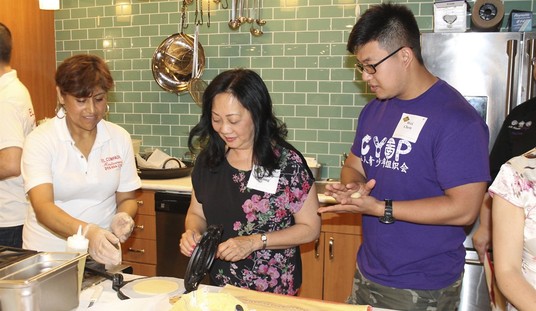Glancing at the two links – Peter Beinart (sub) and Anne Applebaum – cited by Instapundit this morning, I am amazed the Democratic Party is still in the shape that it is and that it did as well as it did in the last election. Applebaum writes:
At least a part of the Western left — or rather the Western far left — is now so anti-American, or so anti-Bush, that it actually prefers authoritarian or totalitarian leaders to any government that would be friendly to the United States. Many of the same people who found it hard to say anything bad about Saddam Hussein find it equally difficult to say anything nice about pro-democracy demonstrators in Ukraine. Many of the same people who would refuse to condemn a dictator who is anti-American cannot bring themselves to admire democrats who admire, or at least don’t hate, the United States. I certainly don’t believe, as President Bush sometimes simplistically says, that everyone who disagrees with American policies in Iraq or elsewhere “hates freedom.” That’s why it’s so shocking to discover that some of them do.
Weirdly, a serious minority of the Democratic Party made themselves the fellow travelers of this latter group. We all know that some of this is nostalgia for the “glory days” of Vietnam, but the question that plagues me is that why some – not a great number, clearly, but enough to swing an election – can adjust their views with the times while a majority cannot.
I have been wrestling with this problem and am coming to the conclusion this has much more to do with psychology than with policy. The emotional attachments formed to political parties are so strong that people will often bend their views or willfully ignore facts in order to maintain their affiliation. Of course, this is ridiculous. In retrospect, we all would have been Republicans in 1864 – or like to think we would have been. This is not to equate Bush with Lincoln, but you get my point.
Now I could be accused of bragging here – of saying those of us who were able to change are emotionally stronger individuals. But I don’t think it’s quite that either. A number of factors are involved in each case. But what I would like to see is some way of making the political parties less heroic/religious entities and more groups coming together over issues. Too idealistic, you say? The parties as we know depend on their blindly driven partisan bases. A newly-educated electorate, however, can begin to counter that. Where is that electorate? Well, here for starters… and elsewhere in the blogosphere. We are small in number but mighty in influence. This is the marketplace of political ideas and its growing.









Join the conversation as a VIP Member